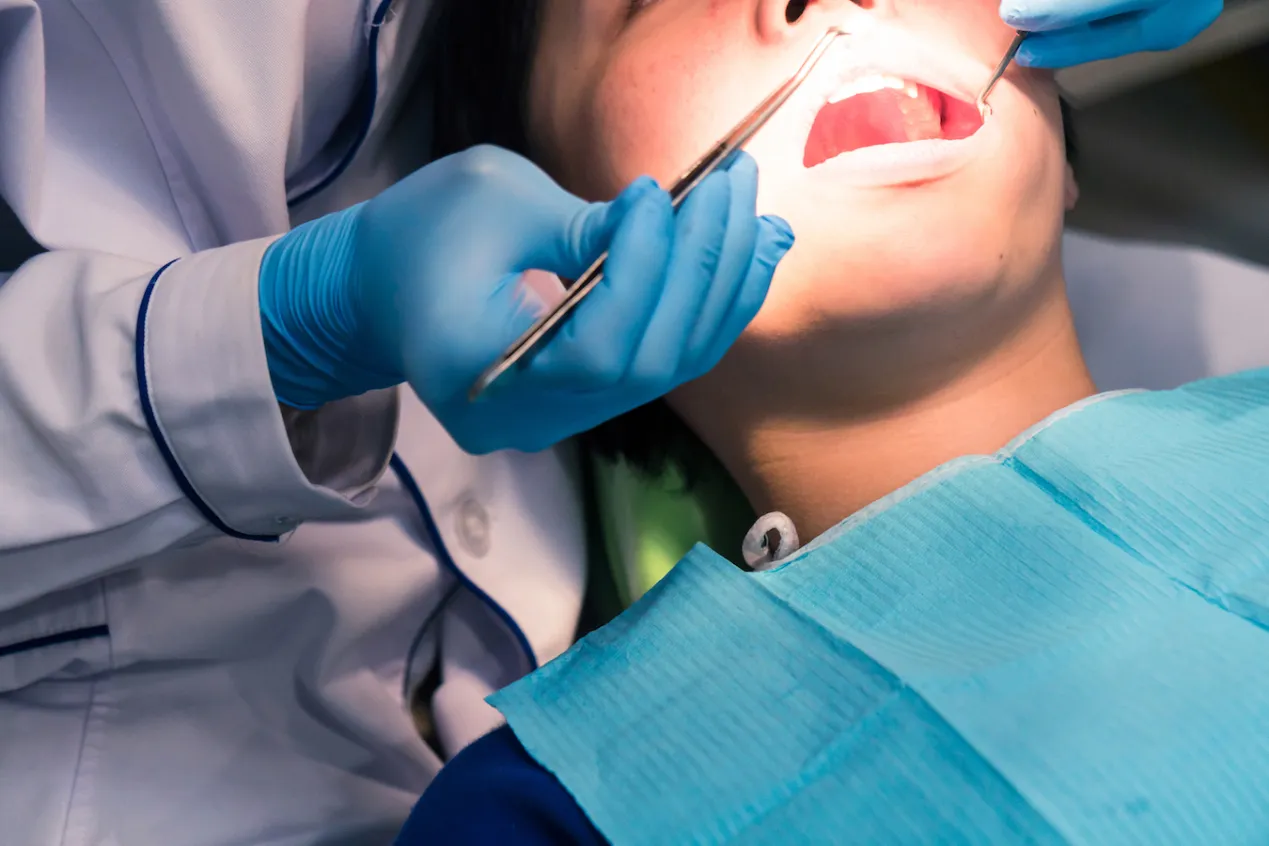Professional Tips for Picking the Right Dentists Eugene for Your Dental Health
Professional Tips for Picking the Right Dentists Eugene for Your Dental Health
Blog Article
Learn More About Regular Dental Concerns Your Dental Practitioner Can Solve
Comprehending regular dental worries is critical for preserving optimum dental health and wellness. Issues such as cavities, gum tissue illness, tooth level of sensitivity, halitosis, and dental cavity are usual yet often forgotten up until they end up being serious. Dental practitioners have the expertise to detect and deal with these conditions, thus protecting against more difficulties. Routine oral sees and customized care plans can attend to these problems properly, guaranteeing a much healthier and brighter smile. Yet what particular treatments do dental experts employ to fight these issues, and how can early treatment make a difference? The response to these questions use useful insights into safeguarding your oral health and wellness.
Cavities
Tooth cavities, additionally understood as tooth decays, are a widespread dental wellness concern caused by the demineralization of tooth enamel as a result of acid manufacturing from bacterial plaque. This procedure begins when bacteria in the mouth metabolize sugars and starches from food, generating acids that deteriorate the enamel. If not addressed immediately, this erosion can penetrate much deeper right into the tooth, affecting the dentin and at some point the pulp, potentially bring about serious discomfort and infection.
The beginning of cavity development usually existing as white areas on the tooth surface, suggesting preliminary demineralization. As the procedure proceeds, these areas can become brownish or black lesions, indicating a lot more substantial degeneration. Routine oral check-ups are vital for early discovery, as tooth cavities in their nascent phases can be treated with remineralization strategies, such as fluoride treatments.
Dental experts usually eliminate the corroded section of the tooth and fill up the tooth cavity with materials such as composite resin, amalgam, or ceramic. Precautionary procedures, consisting of great oral hygiene methods and dietary adjustments, play an essential duty in mitigating the risk of cavities.
Periodontal Disease
While dental caries represent a considerable concern for oral wellness, another essential problem that requires focus is periodontal condition. Also referred to as periodontal condition, gum illness is an inflammatory condition influencing the cells bordering and sustaining the teeth. It is mainly brought on by the build-up of plaque-- a sticky film of germs that bases on teeth.
Gum disease proceeds through stages, beginning with gingivitis, identified by soreness, swelling, and bleeding periodontals (dentists eugene). If left unattended, gingivitis can escalate to periodontitis, where the inner layer of the periodontal and bone draw away from the teeth, forming pockets that become infected. With time, the toxins produced by the microorganisms damage down the bone and connective cells that hold teeth in area, possibly leading to missing teeth
Very early discovery and therapy are critical. Professional oral cleanings and enhanced oral hygiene methods, such as cleaning two times day-to-day and flossing, can handle gingivitis. For advanced phases, treatments might consist of scaling and root planing, anti-biotics, or perhaps surgical treatments.
Regular dental exams play a critical role in taking care of and stopping gum condition. Dental experts can identify early indicators and recommend suitable treatments, making sure the maintenance of healthy gum tissues and general dental health.
Tooth Level Of Sensitivity
Tooth sensitivity affects millions of individuals worldwide, presenting an usual yet usually traumatic dental problem. This problem develops when the enamel, the outer protective layer of the teeth, is compromised, revealing the underlying dentin.
A number of elements add to enamel erosion and succeeding tooth level of sensitivity, consisting of aggressive brushing, acidic foods and beverages, periodontal economic crisis, and bruxism (teeth grinding) Furthermore, dental procedures such as teeth lightening can briefly increase level of sensitivity.
Halitosis
An additional common oral concern that affects people' daily lives is bad breath, medically described bad breath. Bad breath frequently originates from poor dental health, which allows food bits to continue to be in the mouth, fostering microbial development.

Dental professionals play a critical function in detecting and treating bad breath. They can identify the root reason via a detailed examination and supply tailored advice and therapy plans. Referrals might involve enhancing dental hygiene practices, such as normal brushing and flossing, making use of anti-bacterial mouth washes, remaining hydrated, and resolving any type of dental issues. In many cases, a recommendation to a professional might be essential to deal with underlying health issue adding to bad breath. Reliable management of bad breath not only improves oral wellness however likewise dramatically improves lifestyle.
Dental Caries

Stopping dental caries includes a mix of great dental hygiene practices and routine oral check-ups. Brushing teeth at least two times daily with fluoride toothpaste, flossing to remove plaque between teeth, and restricting the intake of sweet foods and drinks are important safety nets. Fluoride treatments, oral sealants, and expert cleansings offered by a dental professional can additionally play a significant role in strengthening enamel and protecting against decay.
When tooth decay occurs, very early intervention is key. Dental practitioners can remove corroded tissue and restore the tooth with fillings made from products such as composite material, amalgam, or porcelain. In advanced cases, therapies like crowns, origin canals, or removals might be needed. By addressing tooth decay promptly, dental professionals aid protect dental structure and feature, making certain long-term oral health.
Final Thought
Resolving typical dental concerns such as cavities, periodontal disease, tooth sensitivity, foul-smelling breath, and tooth decay is important for preserving ideal oral health and total well-being. Dental experts possess the expertise to detect and treat these concerns efficiently, making sure tailored look after each person. Regular preventive measures and oral examinations are important in determining and handling website link these issues early, advertising a much healthier and extra certain smile over a life time.

Tooth degeneration, likewise known as oral cavities, occurs when the enamel, the outer layer of the tooth, is worn down by acids produced by microorganisms in the mouth. Brushing teeth at least two times daily with fluoride toothpaste, flossing to get rid of plaque between teeth, and limiting the consumption of sugary foods and drinks are essential preventative procedures.Addressing usual dental problems such as tooth cavities, periodontal condition, tooth level of sensitivity, bad breath, and tooth degeneration is important for maintaining ideal oral wellness and overall health.
Report this page